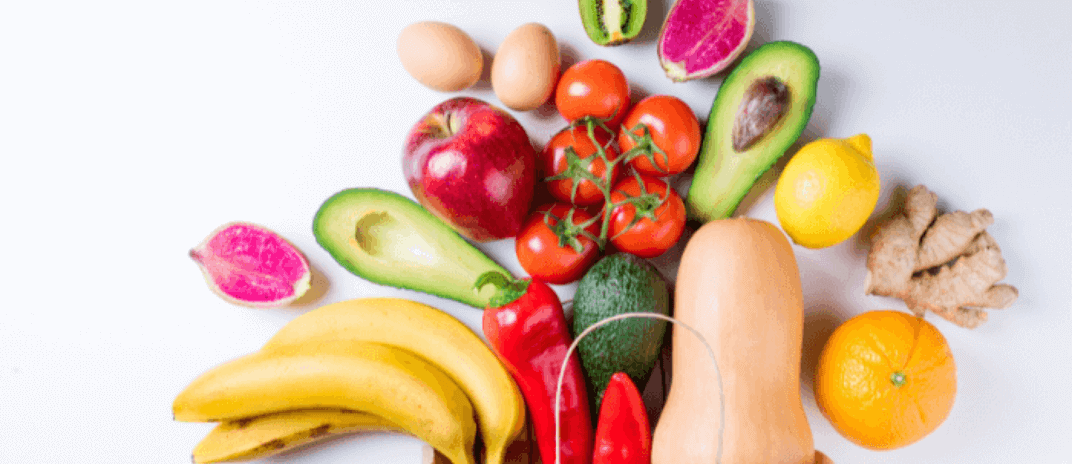


Do you know food and drinks can affect your sleep quality? With more than 35% of American adults suffering from insomnia, there is a strong desire to understand what types of foods help sleep.
Numerous strategies you can use to promote good sleep, such as making changes to your diet. While both diet and sleep are complex, there is no single food that can be guaranteed to provide better sleep.
As we know, different types of foods may have various nutrient profiles, and there are certain foods that help with better sleep quality. Such as red grapes have high levels of melatonin while other foods have virtually none.
Your daily food choices can not only affect energy and sleepiness, but also your weight, blood sugar levels, and other health elements. If you decide to make huge changes to your diet, you’d better consult a doctor. However, diet is multifaceted and cumulative, affected by when what, and how much we eat throughout a day and over weeks, so it is hard to generalize a perfect diet for everyone.

Here are 8 foods that are recommended to help you sleep:
Nuts contain melatonin and essential minerals which play a vital role in bodily processes. They are often found to solve insomnia with a combination of melatonin, magnesium, and zinc.

Fatty fish may help by providing a healthy dose of vitamin D and omega-3 fatty acids, which can help your body’s serotonin regulation. It is found that people having fatty fish can gain better overall sleep and daytime functioning.

Kiwi possesses vitamins and minerals which can help with sleep, and also its antioxidant properties can address high concentrations of serotonin. Try to have one or two kiwis an hour before bedtime.

Having chamomile tea can provide numerous benefits to you. It has antioxidants that can reduce inflammation in chronic diseases and reduce insomnia.

The impact of carbohydrates is influenced by what is consumed with them. Carbohydrate is found to improve sleep to a certain level, while at the same time sugary beverages and sweets have been tied to worse sleep. So, try to combine rice and a certain amount of protein and amino acid before bed. It may make it easier to fall asleep.

Tart cherry juice has a high melatonin concentration which helps regulate circadian rhythm and promote healthy sleep.

Milk, apart from being a natural source of melatonin, contains additional nutrients such as B and D vitamins, which, when combined in malted milk, contribute to a holistic approach to reducing sleep interruptions and promoting a more uninterrupted and restful night’s sleep.

Turkey is a particularly beneficial source of protein, and its positive impact on sleep quality extends beyond merely providing a nutrient essential for muscle strength. The high protein content in turkey contains an amino acid called tryptophan, which plays a crucial role in the synthesis of serotonin and melatonin—neurotransmitters that are instrumental in regulating sleep.

Certain foods are not promoted to have before bed:

In addition to incorporating sleep-friendly foods into one’s diet, several other practices are linked to better sleep and overall improved sleep hygiene. Regular physical activity, such as moderate exercise during the day, has been associated with better sleep quality, helping to regulate circadian rhythms and promote relaxation.
Establishing a consistent sleep schedule, where one goes to bed and wakes up at the same time every day, reinforces the body’s internal clock, enhancing overall sleep efficiency. Creating a calming pre-sleep routine, free from the stimulating effects of electronic devices, can signal to the body that it’s time to wind down.
Mindfulness practices, such as meditation or deep-breathing exercises, have shown efficacy in reducing stress and promoting a tranquil mental state conducive to sleep. Moreover, maintaining a comfortable sleep environment, including a cool and dark room, can significantly contribute to a more restful and uninterrupted night’s sleep. By incorporating these practices alongside mindful food choices, individuals can establish a comprehensive approach to cultivating healthy sleep patterns and enhancing their overall well-being.
Certain food may help with sleep in general, but they are less likely to be effective if you have poor hygiene. Remember to check your sleep environment and sounds and try to incorporate foods into the overall plan to get more replenishing rest.
If you have trouble sleeping, try ShutEye®, an all-in-one sleep app. ShutEye brings a wide variety of tools to help you fall asleep and understand your sleep cycles from a scientific perspective.
So stop tossing and turning all night, and start falling asleep healthily and naturally.
Lin, H. H., Tsai, P. S., Fang, S. C., & Liu, J. F. (2011). Effect of kiwifruit consumption on sleep quality in adults with sleep problems. Asia Pacific journal of clinical nutrition, 20(2), 169–174.
Losso, J. N., Finley, J. W., Karki, N., Liu, A. G., Prudente, A., Tipton, R., Yu, Y., & Greenway, F. L. (2018). Pilot Study of the Tart Cherry Juice for the Treatment of Insomnia and Investigation of Mechanisms. American journal of therapeutics, 25(2), e194–e201. https://doi.org/10.1097/MJT.0000000000000584